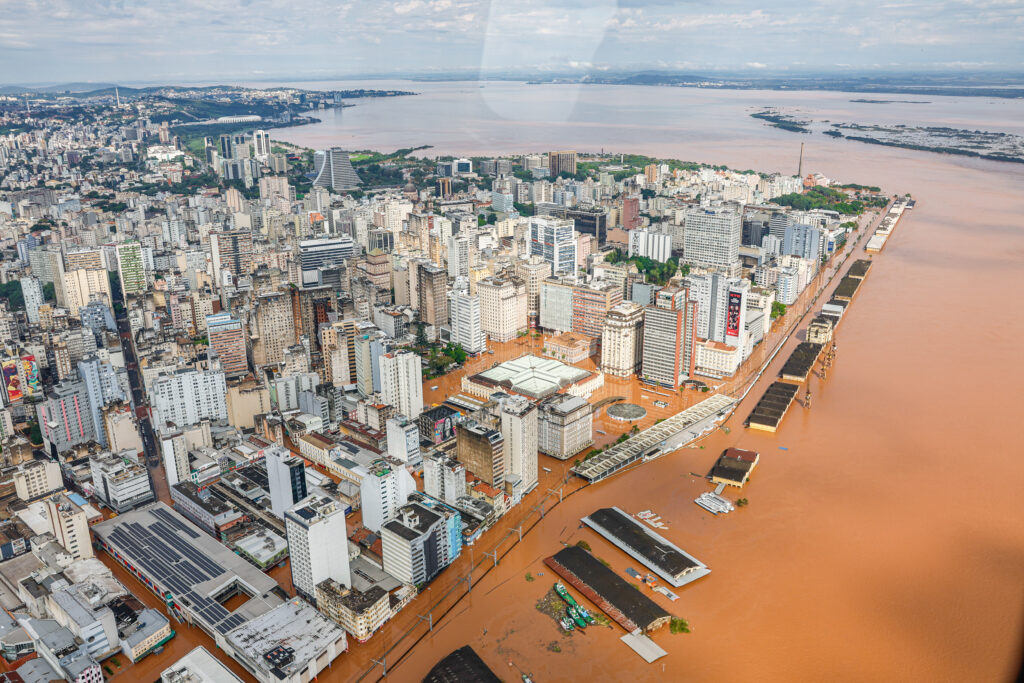In times of crisis, solidarity knows no borders. The Worldwide Foundation for Credit Unions (WFCU) has issued a global call to action, urging the international credit union movement to join hands in supporting flood relief efforts in Brazil. As devastating floods wreak havoc in communities across Brazil, the WFCU’s appeal underscores the importance of collective action and humanitarian assistance in times of need. In this article, we delve into the significance of the WFCU’s initiative, the impact of the floods in Brazil, and the role of the global credit union movement in providing relief and rebuilding efforts.
1. A Unified Response to Disaster The WFCU’s call for flood relief efforts in Brazil highlights the power of collective action in addressing humanitarian crises. By rallying support from credit unions and their members worldwide, the WFCU aims to demonstrate solidarity and compassion for the people of Brazil during their time of need. This unified response underscores the global credit union movement’s commitment to the principles of cooperation, mutual aid, and community resilience.
2. Devastating Impact of Floods Brazil has been grappling with severe flooding in recent weeks, triggered by heavy rainfall and overflowing rivers. The floods have caused widespread destruction, displacing thousands of people, damaging homes and infrastructure, and disrupting essential services. As communities reel from the aftermath of the disaster, the need for humanitarian assistance is urgent and pressing.
3. Humanitarian Imperative In the face of natural disasters, the humanitarian imperative to provide assistance to those affected transcends geographical boundaries. The WFCU’s appeal for flood relief in Brazil underscores the moral obligation of the global credit union movement to support vulnerable communities in their time of greatest need. By mobilizing resources and expertise, credit unions worldwide can make a meaningful difference in alleviating the suffering of flood-affected populations and facilitating their recovery and reconstruction efforts.
4. Strengthening Community Resilience The global credit union movement is founded on principles of solidarity, self-help, and community empowerment. In times of crisis, credit unions play a pivotal role in strengthening community resilience and facilitating local recovery efforts. By mobilizing financial resources, offering support services, and fostering collaboration among stakeholders, credit unions can help communities rebuild and bounce back from adversity.
5. Partnering for Impact The success of flood relief efforts in Brazil depends on effective partnerships and collaboration among diverse stakeholders. The WFCU’s initiative provides an opportunity for credit unions, international organizations, governments, and civil society groups to come together in a coordinated response to the disaster. By pooling resources, sharing expertise, and leveraging networks, partners can maximize the impact of their efforts and deliver meaningful assistance to flood-affected communities.
6. Building Back Better As Brazil begins the process of recovery and reconstruction in the wake of the floods, there is an opportunity to “build back better” by addressing underlying vulnerabilities and strengthening resilience to future disasters. The global credit union movement can contribute to this endeavor by supporting sustainable development initiatives, promoting financial inclusion, and investing in community-based solutions that enhance resilience and mitigate risks.
7. Amplifying the Voices of Affected Communities Central to effective disaster response and recovery is the principle of community engagement and participation. The WFCU’s flood relief efforts in Brazil prioritize the voices and needs of affected communities, ensuring that they are actively involved in decision-making processes and that their perspectives inform the design and implementation of relief and recovery interventions. By amplifying the voices of affected communities, credit unions can empower them to take ownership of their recovery and rebuild their lives with dignity and agency.
8. Addressing Root Causes of Vulnerability While immediate humanitarian assistance is critical in the aftermath of a disaster, it is equally important to address the root causes of vulnerability and build long-term resilience. The global credit union movement can contribute to this goal by advocating for policies and investments that address poverty, inequality, environmental degradation, and other drivers of vulnerability. By addressing these underlying issues, credit unions can help communities withstand future shocks and thrive in the face of adversity.
9. Harnessing the Power of Innovation Innovative approaches and technologies can enhance the effectiveness and efficiency of flood relief efforts in Brazil. The global credit union movement can leverage digital tools, data analytics, and other innovations to streamline service delivery, improve decision-making, and optimize resource allocation. By harnessing the power of innovation, credit unions can maximize the impact of their flood relief efforts and reach more people in need.
10. Promoting Financial Inclusion Access to financial services is essential for recovery and resilience-building in the aftermath of a disaster. The global credit union movement has a critical role to play in promoting financial inclusion and expanding access to affordable, sustainable financial products and services for flood-affected communities in Brazil. By providing access to savings, credit, insurance, and other financial tools, credit unions can help individuals and businesses rebuild their livelihoods and assets, mitigate risks, and prepare for future emergencies.
11. Empowering Local Leadership Local leadership and capacity-building are fundamental to effective disaster response and recovery. The WFCU’s flood relief efforts in Brazil prioritize the strengthening of local institutions, networks, and leadership capacities, enabling communities to take ownership of their recovery and resilience-building processes. By empowering local leaders and organizations, credit unions can ensure that flood-affected communities are better equipped to withstand future disasters and thrive in the face of adversity.
12. Fostering Cross-Border Solidarity Disasters know no borders, and neither does solidarity. The WFCU’s appeal for flood relief in Brazil underscores the interconnectedness of the global credit union movement and the importance of cross-border solidarity in times of crisis. By standing together in support of flood-affected communities, credit unions demonstrate their commitment to the principles of cooperation, mutual aid, and shared humanity that underpin the movement.
13. Amplifying Impact Through Advocacy In addition to providing direct assistance to flood-affected communities, the global credit union movement can amplify its impact through advocacy and policy engagement. By advocating for policies and investments that strengthen disaster preparedness, response, and recovery efforts, credit unions can help create an enabling environment for resilience-building and contribute to more effective and equitable disaster management systems.
14. Ensuring Accountability and Transparency As the global credit union movement mobilizes for flood relief efforts in Brazil, it is essential to uphold principles of accountability and transparency in all aspects of its work. The WFCU and its partners should ensure that resources are allocated efficiently and effectively, that interventions are responsive to the needs of affected communities, and that decision-making processes are inclusive and participatory. By maintaining high standards of accountability and transparency, credit unions can earn the trust and confidence of their members, partners, and stakeholders.
15. Long-Term Commitment to Recovery Recovering from a disaster is a long and arduous process that requires sustained commitment and investment. The global credit union movement’s support for flood relief efforts in Brazil should extend beyond the immediate aftermath of the disaster, encompassing long-term recovery and resilience-building initiatives. By staying engaged and involved in the recovery process over the long term, credit unions can help ensure that flood-affected communities are able to rebuild their lives, strengthen their resilience, and thrive in the face of future challenges.



